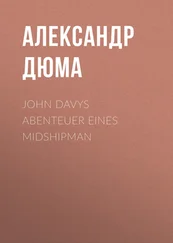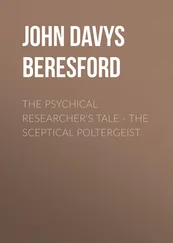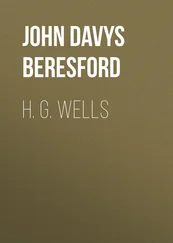John Davys Beresford - The Wonder
Здесь есть возможность читать онлайн «John Davys Beresford - The Wonder» — ознакомительный отрывок электронной книги совершенно бесплатно, а после прочтения отрывка купить полную версию. В некоторых случаях можно слушать аудио, скачать через торрент в формате fb2 и присутствует краткое содержание. Жанр: foreign_prose, foreign_antique, на английском языке. Описание произведения, (предисловие) а так же отзывы посетителей доступны на портале библиотеки ЛибКат.
- Название:The Wonder
- Автор:
- Жанр:
- Год:неизвестен
- ISBN:нет данных
- Рейтинг книги:3 / 5. Голосов: 1
-
Избранное:Добавить в избранное
- Отзывы:
-
Ваша оценка:
- 60
- 1
- 2
- 3
- 4
- 5
The Wonder: краткое содержание, описание и аннотация
Предлагаем к чтению аннотацию, описание, краткое содержание или предисловие (зависит от того, что написал сам автор книги «The Wonder»). Если вы не нашли необходимую информацию о книге — напишите в комментариях, мы постараемся отыскать её.
The Wonder — читать онлайн ознакомительный отрывок
Ниже представлен текст книги, разбитый по страницам. Система сохранения места последней прочитанной страницы, позволяет с удобством читать онлайн бесплатно книгу «The Wonder», без необходимости каждый раз заново искать на чём Вы остановились. Поставьте закладку, и сможете в любой момент перейти на страницу, на которой закончили чтение.
Интервал:
Закладка:
J. D. Beresford
The Wonder
PART ONE
MY EARLY ASSOCIATIONS WITH GINGER STOTT
CHAPTER I
THE MOTIVE
I
I could not say at which station the woman and her baby entered the train.
Since we had left London, I had been struggling with Baillie's translation of Hegel's "Phenomenology." It was not a book to read among such distracting circumstances as those of a railway journey, but I was eagerly planning a little dissertation of my own at that time, and my work as a journalist gave me little leisure for quiet study.
I looked up when the woman entered my compartment, though I did not notice the name of the station. I caught sight of the baby she was carrying, and turned back to my book. I thought the child was a freak, an abnormality; and such things disgust me.
I returned to the study of my Hegel and read: "For knowledge is not the divergence of the ray, but the ray itself by which the truth comes to us; and if this ray be removed, the bare direction or the empty place would alone be indicated."
I kept my eyes on the book—the train had started again—but the next passage conveyed no meaning to my mind, and as I attempted to re-read it an impression was interposed between me and the work I was studying.
I saw projected on the page before me an image which I mistook at first for the likeness of Richard Owen. It was the conformation of the head that gave rise to the mistake, a head domed and massive, white and smooth—it was a head that had always interested me. But as I looked, my mind already searching for the reason of this hallucination, I saw that the lower part of the face was that of an infant. My eyes wandered from the book, and my gaze fluttered along the four persons seated opposite to me, till it rested on the reality of my vision. And even as my attention was thus irresistibly dragged from my book, my mind clung with a feeble desperation to its task, and I murmured under my breath like a child repeating a mechanically learned lesson: "Knowledge is not the divergence of the ray but the ray itself...."
For several seconds the eyes of the infant held mine. Its gaze was steady and clear as that of a normal child, but what differentiated it was the impression one received of calm intelligence. The head was completely bald, and there was no trace of eyebrows, but the eyes themselves were protected by thick, short lashes.
The child turned its head, and I felt my muscles relax. Until then I had not been conscious that they had been stiffened. My gaze was released, pushed aside as it were, and I found myself watching the object of the child's next scrutiny.
This object was a man of forty or so, inclined to corpulence, and untidy. He bore the evidences of failure in the process of becoming. He wore a beard that was scanty and ragged, there were bald patches of skin on the jaw; one inferred that he wore that beard only to save the trouble of shaving. He was sitting next to me, the middle passenger of the three on my side of the carriage, and he was absorbed in the pages of a half-penny paper—I think he was reading the police reports—which was interposed between him and the child in the corner diagonally opposite to that which I occupied.
The man was hunched up, slouching, his legs crossed, his elbows seeking support against his body; he held his clumsily folded paper close to his eyes. He had the appearance of being very myopic, but he did not wear glasses.
As I watched him, he began to fidget. He uncrossed his legs and hunched his body deeper into the back of his seat. Presently his eyes began to creep up the paper in front of him. When they reached the top, he hesitated a moment, making a survey under cover, then he dropped his hands and stared stupidly at the infant in the corner, his mouth slightly open, his feet pulled in under the seat of the carriage.
As the child let him go, his head drooped, and then he turned and looked at me with a silly, vacuous smile. I looked away hurriedly; this was not a man with whom I cared to share experience.
The process was repeated. The next victim was a big, rubicund, healthy-looking man, clean shaved, with light-blue eyes that were slightly magnified by the glasses of his gold-mounted spectacles. He, too, had been reading a newspaper—the Evening Standard —until the child's gaze claimed his attention, and he, too, was held motionless by that strange, appraising stare. But when he was released, his surprise found vent in words. "This," I thought, "is the man accustomed to act."
"A very remarkable child, ma'am," he said, addressing the thin, ascetic-looking mother.
II
The mother's appearance did not convey the impression of poverty. She was, indeed, warmly, decently, and becomingly clad. She wore a long black coat, braided and frogged; it had the air of belonging to an older fashion, but the material of it was new. And her bonnet, trimmed with jet ornaments growing on stalks that waved tremulously—that, also, was a modern replica of an older mode. On her hands were black thread gloves, somewhat ill-fitting.
Her face was not that of a country woman. The thin, high-bridged nose, the fallen cheeks, the shadows under eyes gloomy and retrospective—these were marks of the town; above all, perhaps, that sallow greyness of the skin which speaks of confinement....
The child looked healthy enough. Its great bald head shone resplendently like a globe of alabaster.
"A very remarkable child, ma'am," said the rubicund man who sat facing the woman.
The woman twitched her untidy-looking black eyebrows, her head trembled slightly and set the jet fruit of her bonnet dancing and nodding.
"Yes, sir," she replied.
"Very remarkable," said the man, adjusting his spectacles and leaning forward. His action had an air of deliberate courage; he was justifying his fortitude after that temporary aberration.
I watched him a little nervously. I remembered my feelings when, as a child, I had seen some magnificent enter the lion's den in a travelling circus. The failure on my right was, also, absorbed in the spectacle; he stared, open-mouthed, his eyes blinking and shifting.
The other three occupants of the compartment, sitting on the same side as the woman, back to the engine, dropped papers and magazines and turned their heads, all interest. None of these three had, so far as I had observed, fallen under the spell of inspection by the infant, but I noticed that the man—an artisan apparently—who sat next to the woman had edged away from her, and that the three passengers opposite to me were huddled towards my end of the compartment.
The child had abstracted its gaze, which was now directed down the aisle of the carriage, indefinitely focussed on some point outside the window. It seemed remote, entirely unconcerned with any human being.
I speak of it asexually. I was still uncertain as to its sex. It is true that all babies look alike to me; but I should have known that this child was male, the conformation of the skull alone should have told me that. It was its dress that gave me cause to hesitate. It was dressed absurdly, not in "long-clothes," but in a long frock that hid its feet and was bunched about its body.
III
"Er—does it—er—can it—talk?" hesitated the rubicund man, and I grew hot at his boldness. There seemed to be something disrespectful in speaking before the child in this impersonal way.
"No, sir, he's never made a sound," replied the woman, twitching and vibrating. Her heavy, dark eyebrows jerked spasmodically, nervously.
"Never cried?" persisted the interrogator.
"Never once, sir."
"Dumb, eh?" He said it as an aside, half under his breath.
Читать дальшеИнтервал:
Закладка:
Похожие книги на «The Wonder»
Представляем Вашему вниманию похожие книги на «The Wonder» списком для выбора. Мы отобрали схожую по названию и смыслу литературу в надежде предоставить читателям больше вариантов отыскать новые, интересные, ещё непрочитанные произведения.
Обсуждение, отзывы о книге «The Wonder» и просто собственные мнения читателей. Оставьте ваши комментарии, напишите, что Вы думаете о произведении, его смысле или главных героях. Укажите что конкретно понравилось, а что нет, и почему Вы так считаете.












